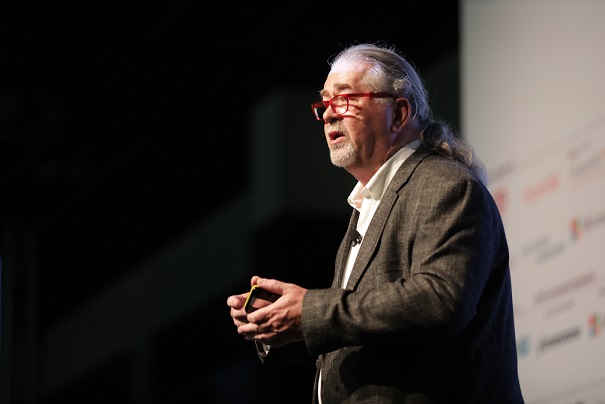John Sumser: Building fully data-driven decision processes
- Shawn Liew

How does your organisation react in times of uncertainty? For John Sumser, a US-based futurist and technology commentator, the answer is a simple one.
“Embrace uncertainty, figure out what the very next thing to do is, and then repeat the process,” said Sumser, who spoke at HR Tech Connect 2020, which took place from May 12-13.
While highlighting that ambiguity and uncertainty will be around for a very long time due to the COVID-19 situation, he also urged companies to seize the “remarkable opportunity” to build a clean slate in the world of their data, and its structure in the HR department.
“It’s a remarkable opportunity to embed the architecture necessary to build for the future, a fully data-driven decision process. Now is the time to get your data in order and solve data problems in your organisation.”
To successfully get data in order, Sumser recommended creating profiles for all employees. “If you are going to have an agile, fluid and resilient organisation that is able to shift based on the circumstances that come your way, you need to know as much as possible about the people who work for you,” he explained.
Organisations then need to establish goals for prediction and tracking. The key, Sumser said, is to recognise the importance of tracking a few things well, rather than track everything all at once.
Then, establish profiles for the recruiting pipeline to prepare for employee absences from work due to recovery or bereavement brought about by COVID-19. Lastly, define a company data model so that the organisation can understand how all the data go together.
As for technologies such as AI and machine learning, which Sumser described as “intelligent tools”, he is quick to emphasise, “Machines can offer a remarkable opinion about what’s going on, but it will always be just that – an opinion, or a point of view that you decide how to fit into your overall decision making.”
Machine learning, for instance, is a technique for examining data to discover repeated patterns. While it may work well within fixed roles and finite settings, it may not work as well when complicated situations arise.
That perhaps, explains why machine learning is most prone to failure during crisis times such as COVID-19. When the majority of the workforce work from home, historical predictability vanishes when factors such as workflow timing and communication change.
When predictability vanishes, machine learning fails, as Sumser explained, “Many of the embedded machine learning tools that you find in your software are going to produce more questionable results then they did in the past. You will then find yourself putting more energy into arguing with the machine’s conclusions.”
Highlighting that machines can be plain wrong because they have no conscience, no common sense and no intuition, he advised, “When you get a recommendation from a machine, regardless of the area of recommendation, you need to sit back and look at it, and try to understand the data the machine used to make this conclusion.”
Sumser also touched on the issue of ethics, which he defined as the art of continuously asking why and what will happen, and how, in HR, ethics equates to problem solving.
“Ethics involves examining decisions and policies with direct and indirect consequences on employees, stakeholders and the entire ecosystem of the organisation. It is particularly important to think of ethics at a crisis time, where people are making decisions in a hurry.”
It also represents a slowing down of the decision-making process. For instance, Sumser advised against releasing algorithms into organisations without a legal review, and without first understanding what is going on.
As the world continues to change around us, he offered a last piece of advice: Do not let your attempt to solve the crisis get in the way of coherent decision making, and keep these seven points to heart:
- Once in a lifetime clean slate
- Build for the future
- Get your data in order
- One step at a time
- Avoid short-term fixes
- Design with ethics in mind
- Learn to argue with machines






